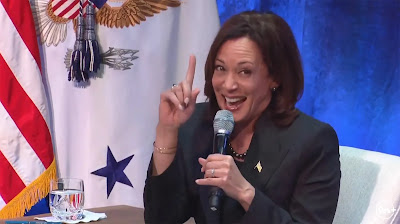Everything Everywhere, All at Once. That's a good description of the Department of Education's handling of the federal student-loan program. From every perspective and by any measure, the program is a disaster.
Even before COVID, the program was in crisis. Education Secretary Betsy DeVos admitted in a 2018 speech that only one out of four borrowers were paying down the principal and interest on their loans. And she reported that about 20 percent of borrowers were either delinquent on their loans or in default.
But why dwell on evil tidings? Shortly after Betsy resigned from the Trump administration, her speech was removed from the web.
Then came the COVID pandemic, and the feds paused all student-loan debt collection. Thus, 43 million college borrowers stopped making monthly loan payments without penalty and without accruing interest. This pause has now lasted three years.
According to the Committee for a Responsible Federal Budget, the cost of the loan repayment pause was $155 billion as of December of last year. And that cost continues going up as each day goes by.
To add fuel to the flames--the Biden Administration is rolling out a modified income-based repayment plan, which is about as close as one can get to free money.
Under the new plan, undergraduate borrowers will only pay 5 percent of their discretionary annual income on their student loans, which is generously defined as the amount over 225 percent of the federal poverty-level guidelines.
For example, college graduates in three-member households will only pay 5 percent of their annual income over $55,935. Thus, grads making $50,000 a year will make monthly payments of zero, regardless of how much they borrowed!
Our scatter-brained Department of Education estimates this plan will cost the taxpayers $138 billion over ten years--chicken feed!
However, the Penn Wharton Budget Model projects the cost to be more than double DOE's estimate--$333 billion to $361 billion.
Why are the estimates so different? Because Penn Wharton reasonably predicts that more borrowers will sign up for this new easy-peasy repayment plan.
Currently, about a third of eligible student debtors participate in an income-based repayment plan. Penn Wharton estimates that 70 to 75 percent of student borrowers will sign up for the new program because most borrowers will only be required to make token payments (or no payments) on their student loans.
Penn Wharton also predicts that students will take out bigger loans when they realize the new income-based repayment plan is breathtakingly generous. If that happens, the cost of the program will be even higher.
In short, the Department of Education's new income-based repayment plan is nutso. It will encourage students to take out ever-larger student loans, which, in turn, will prompt colleges and universities to keep raising the cost of tuition.
 |
| DOE's revised income-based repayment plan is nutso. |




